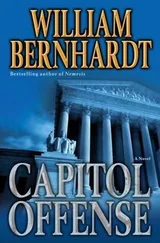The judge at last looked up; he offered Ben a patronizing, frightening grin.
“All right, son, give us your name now.”
“Benjamin Kincaid, your honor.” He swallowed hard. “I represent Bertha Adams in regard to both motions.” His voice shook a bit, but he managed to control it. He hoped.
“Gentlemen,” Mayberry said, scanning the courtroom without making eye contact with anyone, “I don’t see any reason to drag this thing out and complicate what should be a simple, unified matter. If you will give me your basic positions in your opening statements, we’ll hear from Mrs. Adams, and then we should be able to resolve the motions in short order.”
Ben listened carefully. The subtext, he thought, is the judge has something else he wants to do today. Pressing golf game or an attractive piece on the side. Ben made a mental note to cut his presentation to the bare essentials.
“Opening statements, gentlemen.”
Ben rose to his feet, then realized that Sokolowsky was also standing. Sokolosky’s motion was first on the docket. That meant he spoke first.
“I think it would be better if we spoke one at a time, son.” The judge chuckled, then looked to his clerk for a response. The woman grinned.
Mortified, Ben sat down.
Sokolosky walked to the podium. “Your honor, as you say, this is an extremely simple case. It is also a textbook litany of wanton misbehavior, of disobedience to the laws and policies of this state, and a testament to the prudence of the judicial tenets announced by courts such as this one.” He gestured deferentially to the judge.
“Your honor, Emily X is a foundling Bertha Adams found the child. She did not report her discovery to the Department of Human Services, although she was advised to do so. She did not report the finding to any of several missing child agencies active in this state. She did not attempt to find suitable foster parents or to locate the child’s biological parents. She simply took the little girl home, to lead a cloistered, secluded life. She lied to her neighbors and kept the little girl to herself.
“In this day and age, we hear many rumors about elderly people snatching children from shopping centers and forcing them to become domestic servants or … to adopt even more revolting roles. While we are not suggesting that anything like that has occurred—”
The hell you aren’t, Ben thought.
“—there is something … unusual about Mrs. Adams’s handling of this matter.”
Sokolosky shuffled through a file. “The Department has prepared a report, your honor, based upon what little information is known about the woman who calls herself Bertha Adams. Although I do not wish to appear indelicate, the Department earnestly believes that she is not a suitable foster or adoptive parent for several reasons. She fails to meet many, indeed most, of the objective criteria established by the Department.”
Sokolosky gave a copy of the report to the bailiff, who then handed it to Judge Mayberry. He gave another copy to Ben.
Ben quickly glanced over the report. It was a graph-style report titled “Parent Evaluation.” Long graph lines indicated the areas of inadequacy. Age was the longest. The report also noted her lack of experience at child raising, the absence of any regular income of her own, and, without explanation, the fact that she was a single parent.
Ben closed the report folder, furious. The report was intentionally misleading.
“Your honor, we do not doubt that Mrs. Adams has formed some sort of attachment or”—he paused meaningfully—“dependence on the child she has kept for so long. But we have been charged by the state of Oklahoma to try to find the best home possible for each such ward of the state. We have an extensive list of ideal parents who would simply love to adopt a little girl, even one as old as Emily. We respectfully request that this court deliver custody of the child to the DHS so that we can assign her to a permanent home.” Sokolosky collected his papers and sat down.
The judge evidently felt the need for some levity. “ Now it’s your turn to talk, son,” he chuckled. He looked again to his clerk for a response, which she freely gave. How nice to have your own standing audience, Ben thought.
Ben rose, attempting to exude confidence. He placed his notes on the podium. He had meticulously planned his strategy for his opening argument. He couldn’t possibly justify the way Jonathan and Bertha had kept Emily without telling anyone, so he was better off not dwelling upon it. Instead, he would emphasize Bertha’s warmth and good nature, her nurturing of the child despite difficult circumstances, and the bonding that had taken place.
“Your honor,” he began. His voice sounded scratchy. He cleared his throat and started again. “Your honor, I notice that, although the DHS complains that my client doesn’t meet many of their generalized, preconceived qualifications, they have never stated that she is or would be an unfit parent. Emily has lived with Mrs. Adams for almost a year now, and yet the DHS has made no complaints whatsoever about the child’s treatment during that time. Mrs. Adams may not have followed the proper procedures, but I submit that she nonetheless has earned the right to be considered Emily’s foster parent in loco parentis. I understand that the Department has its rules and procedures, and that it likes to see that they are observed. But the dispositive legal question in a proceeding of this nature is: What is in the best interests of the child? A slavish devotion to administrative procedure is not more important than the child herself, and I’m sure that this court cannot be fooled into making a decision that holds otherwise.”
“Don’t underestimate me,” the judge said. Again, the chuckle, the quick glance to the peanut gallery. Ben had the distinct feeling he was not making an impression.
“Thank you, son,” the judge said suddenly. “I think I’ve grasped your point.”
Ben stammered, then fell silent. He wasn’t half-finished yet.
“It’s pretty clear to me that these two motions are mutually exclusive,” the judge continued. “If I give the DHS the girl, I can’t let Mrs. Adams adopt her. And if I let Mrs. Adams adopt the girl, then the DHS ain’t gonna get her. So I’m going to consolidate these two motions and make a single decision at the conclusion of the hearing. If the Department has no objection, I’m going to ask Mr. Kincaid to call Mrs. Adams to the stand, ’cause it looks to me like she’s the only person I’m gonna need to hear from to decide this one.”
Sokolosky half rose with a little bow. “No objections, your honor. We concur.”
Consolidation. Cut straight to the key witness. Again, the hurry-up treatment. Why was Mayberry so determined to conclude this hearing?
Ben called Bertha to the stand. She took her seat at the judge’s lower left with relative ease, but it was clear to Ben she was extremely nervous. Realistically, Ben knew he couldn’t count on her for much.
Slowly and methodically, Ben took Bertha through the course of her life with Emily. How her late husband brought her home. How they took her to the police, but no trace of a parent could be found. How happy Emily made their home. How, at the suggestion of Joseph Sanguine, they found a lawyer to help them legally adopt Emily. Following Ben’s prior recommendation, she did not mention Emily’s neurological condition. Bertha spoke in a flat, even tone of voice. Ben knew that her nervousness was affecting her voice, but he was worried that it might be making her sound disinterested or artificial.
The judge listened to her testimony without comment or expression.
“Mrs. Adams,” Ben continued, “if this court allows you to adopt Emily, will you do everything in your power to raise her in the best possible way?”
Читать дальше







